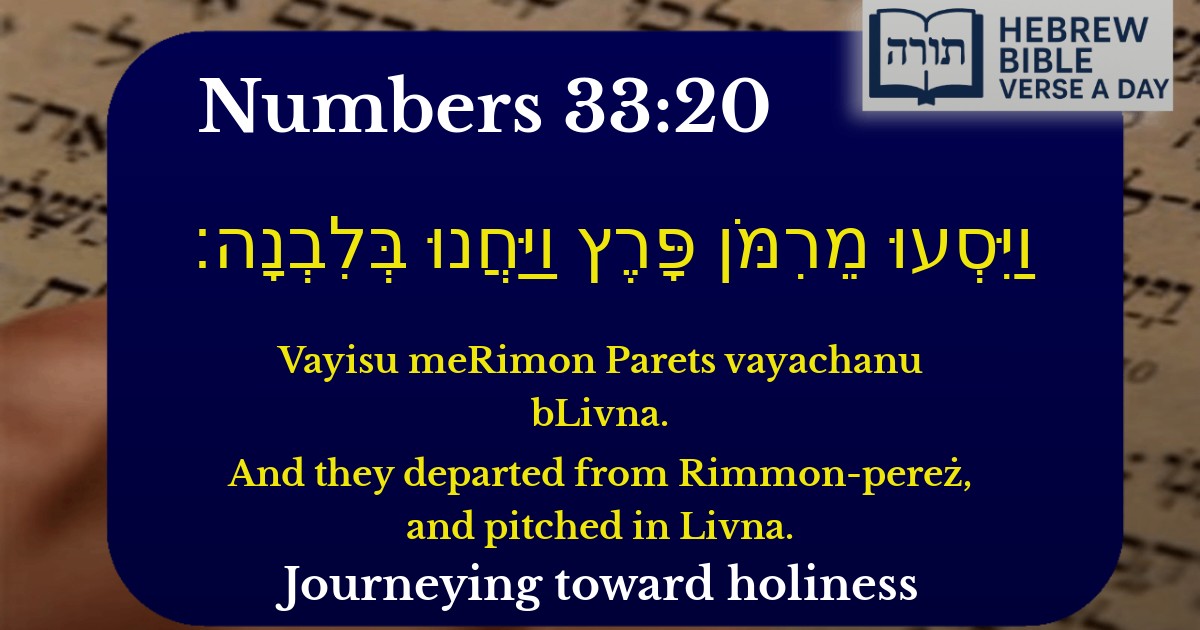Join Our Newsletter To Be Informed When New Videos Are Posted
Join the thousands of fellow Studends who rely on our videos to learn how to read the bible in Hebrew for free!
Hebrew Text
וַיִּסְעוּ מֵרִמֹּן פָּרֶץ וַיַּחֲנוּ בְּלִבְנָה׃
English Translation
And they departed from Rimmon-pereż, and pitched in Livna.
Transliteration
Vayisu meRimon Parets vayachanu bLivna.
Hebrew Leining Text
וַיִּסְע֖וּ מֵרִמֹּ֣ן פָּ֑רֶץ וַֽיַּחֲנ֖וּ בְּלִבְנָֽה׃
Parasha Commentary
📚 Talmud Citations
This verse is not quoted in the Talmud.


Geographical Context
The verse describes the journey of the Israelites in the wilderness, moving from Rimmon-perez to Livna. According to Rashi (Bamidbar 33:20), Rimmon-perez is derived from the word "peretz" (פרץ), meaning "breach" or "cleft," suggesting a place characterized by rocky terrain or a split in the mountains. Livna, on the other hand, is associated with the Hebrew word "lavan" (לבן), meaning "white," possibly referring to chalky or limestone formations in the area.
Spiritual Significance
The Midrash Tanchuma (Masei 8) interprets these journeys allegorically, teaching that each encampment represents a stage in the spiritual development of the Jewish people. Moving from Rimmon-perez ("breach") to Livna ("white") symbolizes the transition from a state of brokenness or sin (represented by the breach) to purity and repentance (represented by whiteness). This aligns with the Talmudic teaching (Yoma 86b) that sincere repentance transforms intentional sins into merits, as white as snow.
Halachic Insights
Rambam (Mishneh Torah, Hilchot Teshuvah 2:4) emphasizes that repentance requires leaving one's previous sinful state (symbolized by departing Rimmon-perez) and establishing oneself in a new, purified state (symbolized by encamping in Livna). The journey between these locations teaches that spiritual growth is a process requiring both departure from the old and commitment to the new.
Kabbalistic Interpretation
The Zohar (Bamidbar 157a) associates Livna with the sefirah of Chesed (kindness), suggesting that after overcoming obstacles (Rimmon-perez), one reaches a state of divine benevolence. The white color of Livna alludes to the purity of divine light, as described in Kabbalistic works such as the Pardes Rimonim.